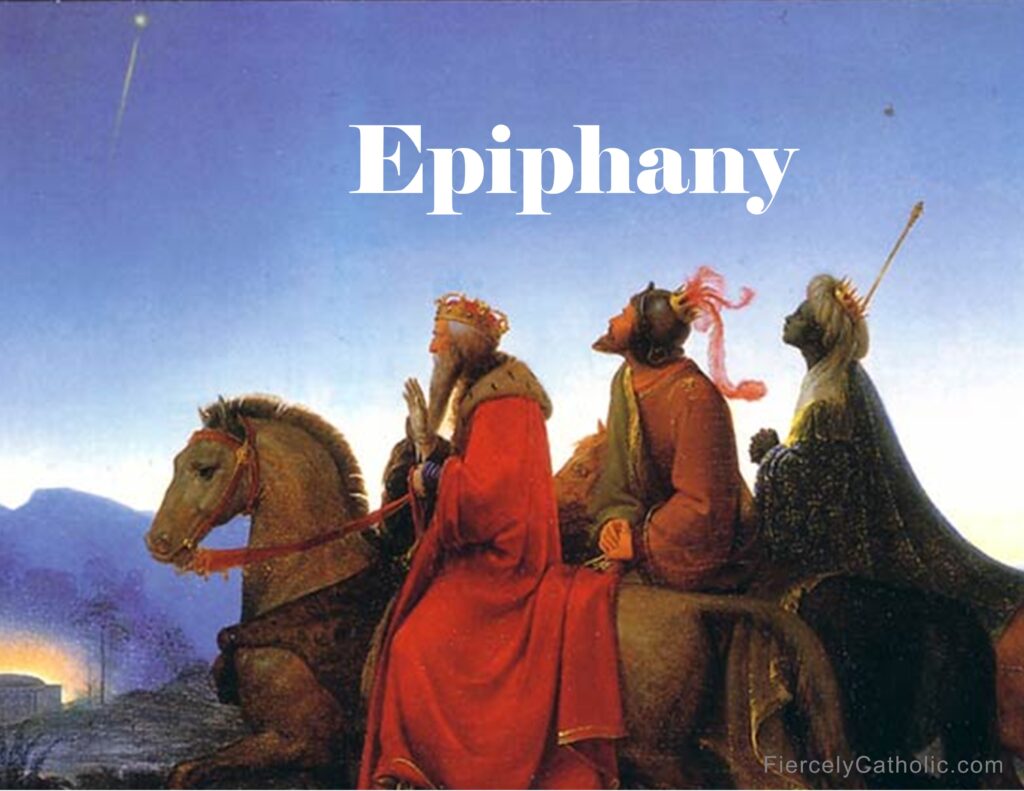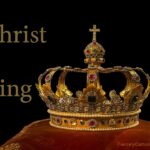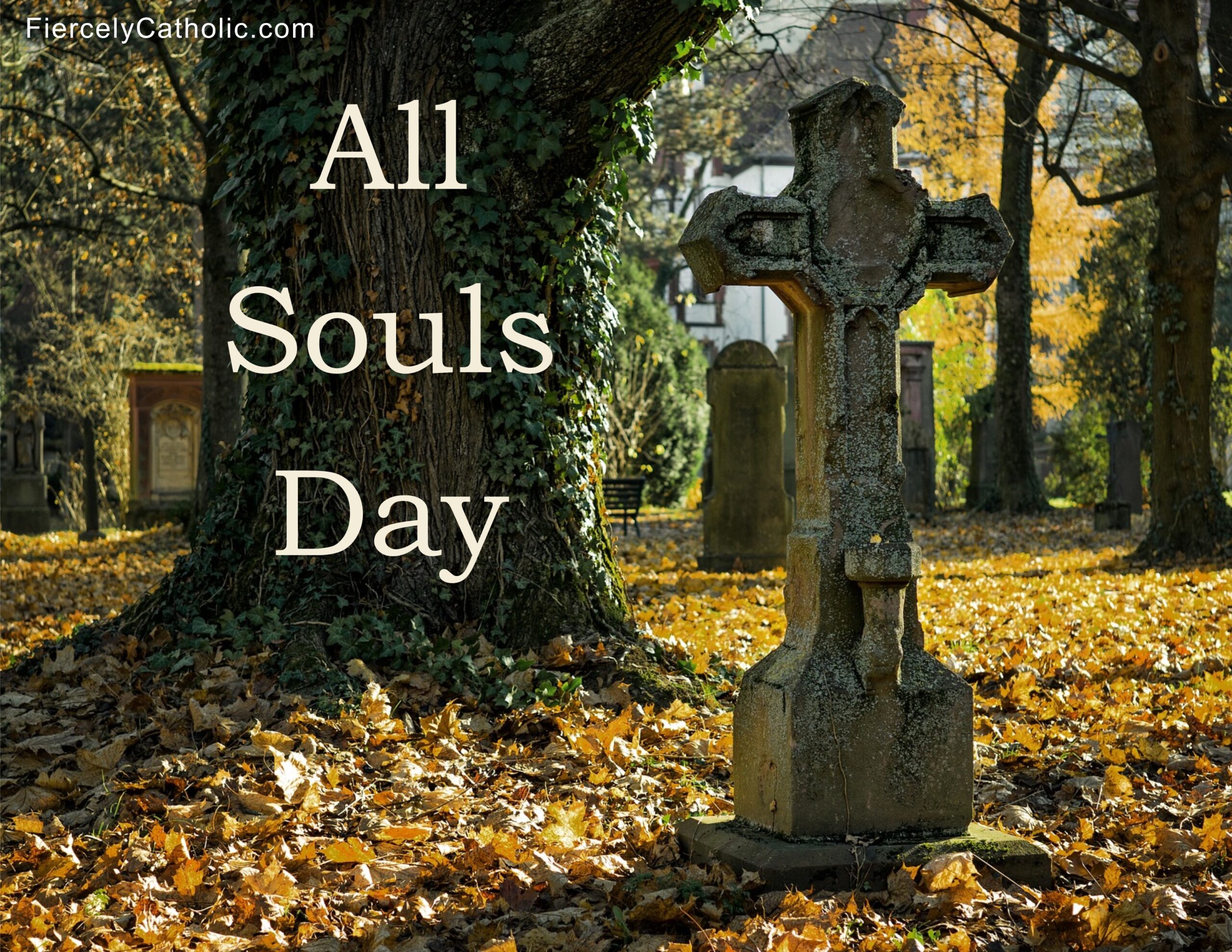
The Epiphany, or manifestation of Christ has been celebrated since earliest days of the Church.
It recounts the event when wise men from the East, or magi, visited the child Jesus and brought Him gifts. They had seen a new star in the east which they understood to signify the birth of a new king.
Representing the Gentile nations, these men show that Jesus did not come for a single nation or tribe but came for the whole world.
Sometimes referred to as kings or astrologers, the Bible does not provide their names but traditionally they are called Balthazar, Gaspar, and Melchior. They are venerated as saints.
The gifts of Gold, Frankincense, and Myrrh that would be brought to Jesus were prophesied in the Old Testament. These gifts also prophesy Jesus’ roles as King, Priest, and Savior.
The Feast of the Epiphany is celebrated on January 6, or on the first Sunday after January 1 in the United States.
God is with us:
The Magi Kings, at the moment when they present themselves before the Child in his mother’s arms, accept in the light of the Epiphany the Gift of God Incarnate, his ineffable dedication to man in the mystery of the Incarnation. At the same time, “opening their treasures, they offered Him gifts”; it is a question of the concrete gifts of which the evangelist speaks, but above all they open themselves up to Him, with the interior gift of their own heart. And this is the real treasure they offer, of which the gold, incense and myrrh are only an exterior expression. The fruit of the Epiphany consists in this gift: they recognize God and they meet Him.
Pope John Paul II, General Audience, January 24, 1979
The Magi represent those who have ever searched for the truth:
The Wise Men were looking for more than what other religions could offer:
Jesus is the future King who Jews and non-Jews were waiting for:
Now when Jesus was born in Bethlehem of Judea in the days of Herod the king, behold, wise men from the East came to Jerusalem, saying, “Where is He who has been born King of the Jews? For we have seen his star in the East, and have come to worship Him.”
Matthew 2: 1-2
Matthew’s story about the Magi is a serious one:
The Epiphany emphasizes that Jesus is God and that He came to die:
The Magi visited Jerusalem in the days of a violent king:
The Epiphany is the manifestation of Jesus as Messiah of Israel, Son of God and Savior of the world. The great feast of Epiphany celebrates the adoration of Jesus by the wise men (magi) from the East, together with his Baptism in the Jordan and the wedding feast at Cana in Galilee. In the magi, representatives of the neighboring pagan religions, the Gospel sees the first-fruits of the nations, who welcome the good news of salvation through the Incarnation. The magi’s coming to Jerusalem in order to pay homage to the King of the Jews shows that they seek in Israel, in the messianic light of the star of David, the One who will be king of the nations. Their coming means that pagans can discover Jesus and worship Him as Son of God and Savior of the world only by turning towards the Jews and receiving from them the messianic promise as contained in the Old Testament. The Epiphany shows that “the full number of the nations” now takes its “place in the family of the patriarchs”, and acquires Israelitica dignitas (is made “worthy of the heritage of Israel”).
Catechism of the Catholic Church 528
God wants to reveal Himself to the whole world:
God’s plan is for his love to be manifested to the Gentiles:
The Truth, Goodness, and Beauty of the Catholic Church
How to lead a life that leads to eternity with God:
Share this page with friends and family to start a conversation about your faith.
Don’t miss a post. Learn more about the Catholic Church and strengthen your Catholic faith.
Find more Fiercely Catholic video issues here.
Subscribe here.


